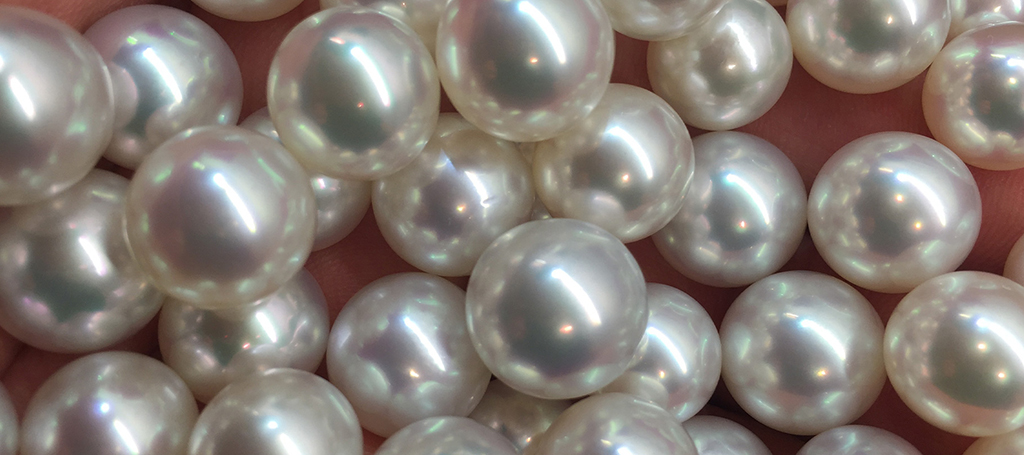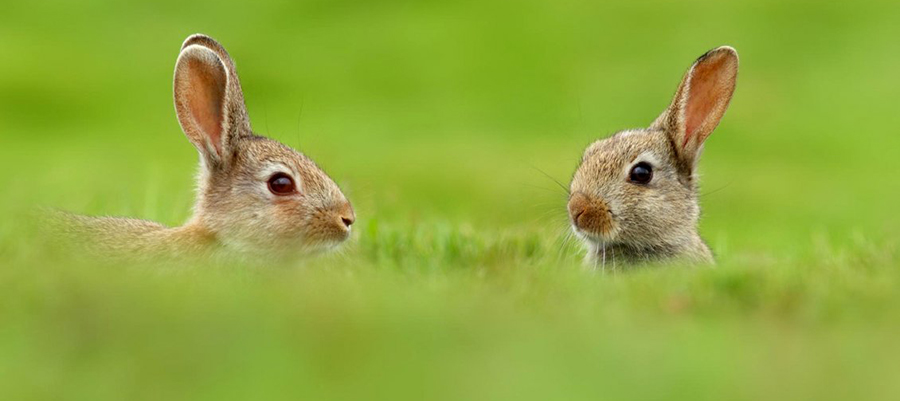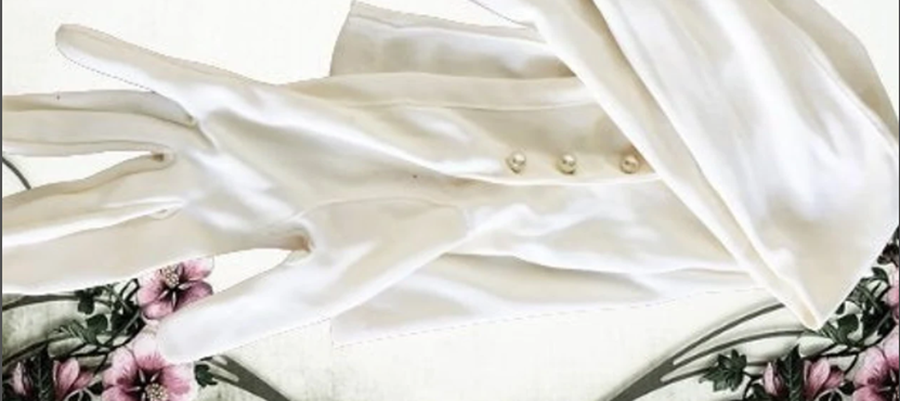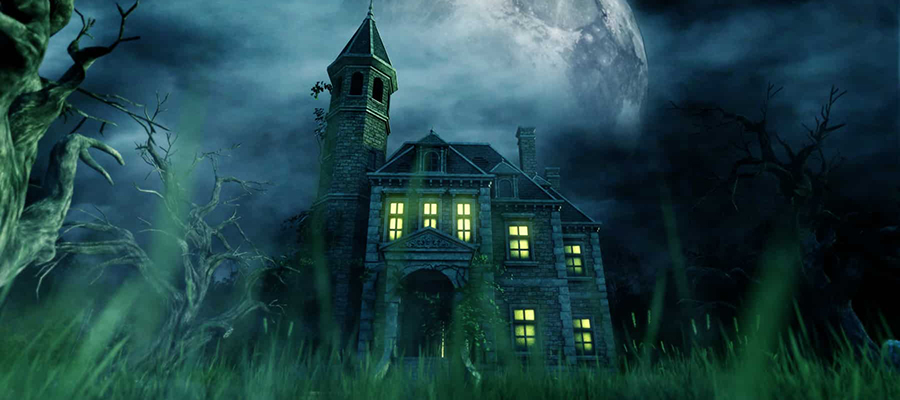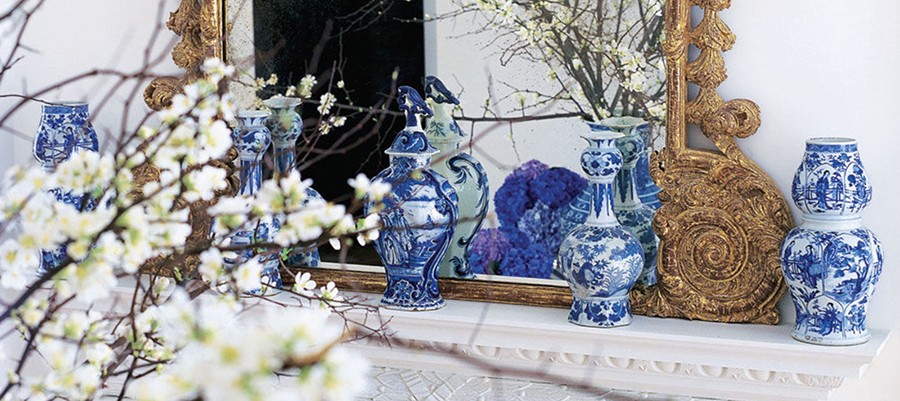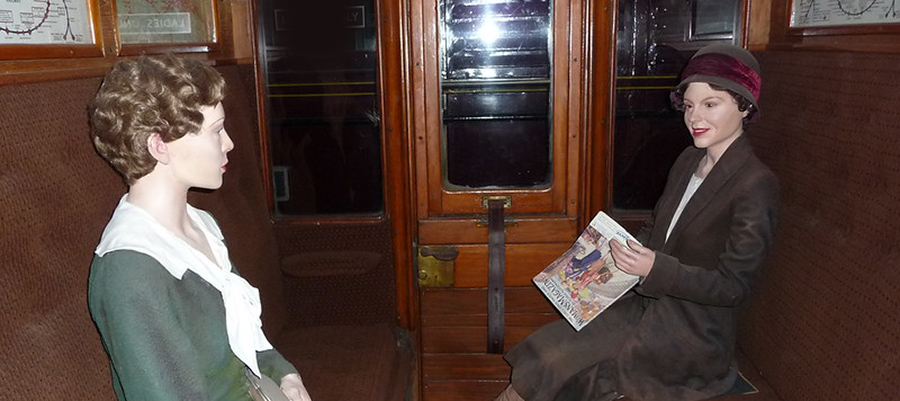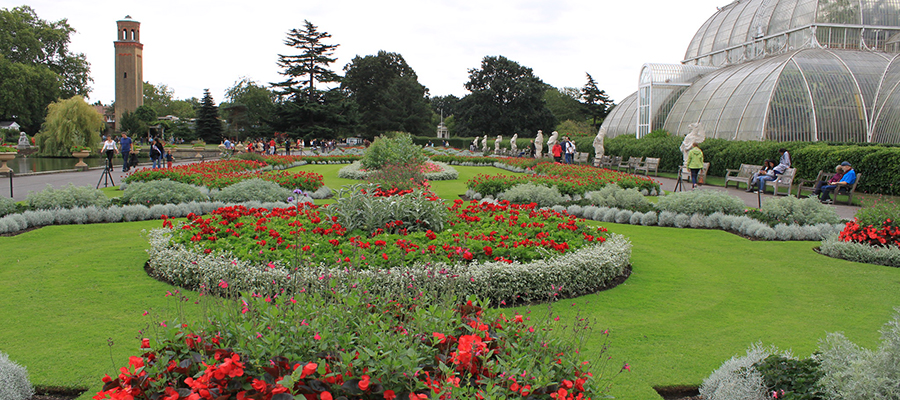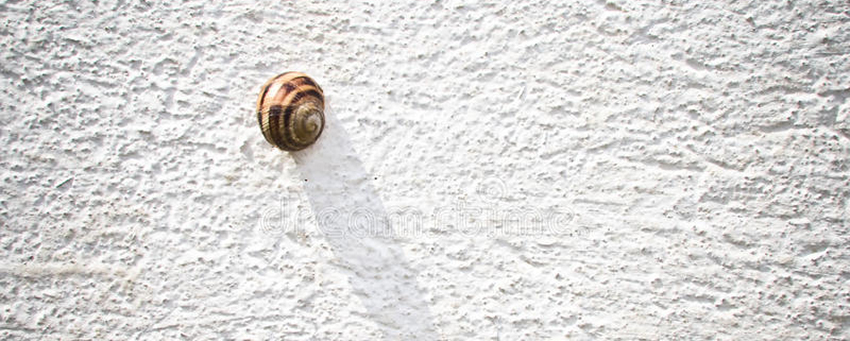In The Duchess and the Jeweller by Virginia Woolf we have the theme of appearance, trust, vanity, happiness, insecurity and control. Taken from her The Complete Shorter Fiction collection the story addresses the British class system and the ambitions of all those dependent upon this system. Woolf spares no expense in her critique of both the aristocracy and those seeking to climb up the social ladder.

Oliver Bacon lived at the top of a house overlooking the Green Park. He had a flat; chairs jutted out at the right angles—chairs covered in hide. Sofas filled the bays of the windows—sofas covered in tapestry. The windows, the three long windows, had the proper allowance of discreet net and figured satin. The mahogany sideboard bulged discreetly with the right brandies, whiskeys and liqueurs.
And from the middle window he looked down upon the glossy roofs of fashionable cars packed in the narrow straits of Piccadilly. A more Central position could not be imagined. And at eight in the morning he would have his breakfast brought in on a tray by a man-servant: the man-servant would unfold his crimson dressing-gown; he would rip his letters open with his long pointed nails and would extract thick white cards of invitation upon which the engraving stood up roughly from duchesses, countesses, viscountesses and Honourable Ladies.
Then he would wash; then he would eat his toast; then he would read his paper by the bright burning fire of electric coals.
“Behold Oliver,” he would say, addressing himself. “You who began life in a filthy little alley, you who . . . ” and he would look down at his legs, so shapely in their perfect trousers; at his boots; at his spats. They were all shapely, shining; cut from the best cloth by the best scissors in Savile Row. But he dismantled himself often and became again a little boy in a dark alley.
He had once thought that the height of his ambition—selling stolen dogs to fashionable women in Whitechapel. And once he had been done. “Oh, Oliver,” his mother had wailed. “Oh, Oliver! When will you have sense, my son?” . . . Then he had gone behind a counter; had sold cheap watches; then he had taken a wallet to Amsterdam. . . . At that memory he would chuckle—the old Oliver remembering the young. Yes, he had done well with the three diamonds; also there was the commission on the emerald.
After that he went into the private room behind the shop in Hatton Garden; the room with the scales, the safe, the thick magnifying glasses. And then . . . and then . . . He chuckled. When he passed through the knots of jewellers in the hot evening who were discussing prices, gold mines, diamonds, reports from South Africa, one of them would lay a finger to the side of his nose and murmur, “Hum—m—m,” as he passed.
It was no more than a murmur; no more than a nudge on the shoulder, a finger on the nose, a buzz that ran through the cluster of jewellers in Hatton Garden on a hot afternoon—oh, many years ago now! But still Oliver felt it purring down his spine, the nudge, the murmur that meant, “Look at him—young Oliver, the young jeweller—there he goes.” Young he was then.
And he dressed better and better; and had, first a hansom cab; then a car; and first he went up to the dress circle, then down into the stalls. And he had a villa at Richmond, overlooking the river, with trellises of red roses; and Mademoiselle used to pick one every morning and stick it in his buttonhole.
“So,” said Oliver Bacon, rising and stretching his legs. “SO . . . ”
And he stood beneath the picture of an old lady on the mantelpiece and raised his hands. “I have kept my word,” he said, laying his hands together, palm to palm, as if he were doing homage to her. “I have won my bet.”
That was so; he was the richest jeweller in England; but his nose, which was long and flexible, like an elephant’s trunk, seemed to say by its curious quiver at the nostrils (but it seemed as if the whole nose quivered, not only the nostrils) that he was not satisfied yet; still smelt something under the ground a little further off. Imagine a giant hog in a pasture rich with truffles; after unearthing this truffle and that, still it smells a bigger, a blacker truffle under the ground further off. So Oliver snuffed always in the rich earth of Mayfair another truffle, a blacker, a bigger further off.
Now then he straightened the pearl in his tie, cased himself in his smart blue overcoat; took his yellow gloves and his cane; and swayed as he descended the stairs and half snuffed, half sighed through his long sharp nose as he passed out into Piccadilly. For was he not still a sad man, a dissatisfied man, a man who seeks something that is hidden, though he had won his bet?
He swayed slightly as he walked, as the camel at the zoo sways from side to side when it walks along the asphalt paths laden with grocers and their wives eating from paper bags and throwing little bits of silver paper crumpled up on to the path. The camel despises the grocers; the camel is dissatisfied with its lot; the camel sees the blue lake and the fringe of palm trees in front of it.
So the great jeweller, the greatest jeweller in the whole world, swung down Piccadilly, perfectly dressed, with his gloves, with his cane; but dissatisfied still, till he reached the dark little shop, that was famous in France, in Germany, in Austria, in Italy, and all over America—the dark little shop in the street off Bond Street.
As usual, he strode through the shop without speaking, though the four men, the two old men, Marshall and Spencer, and the two young men, Hammond and Wicks, stood straight and looked at him, envying him. It was only with one finger of the amber-coloured glove, waggling, that he acknowledged their presence. And he went in and shut the door of his private room behind him.
Then he unlocked the grating that barred the window. The cries of Bond Street came in; the purr of the distant traffic. The light from reflectors at the back of the shop struck upwards. One tree waved six green leaves, for it was June. But Mademoiselle had married Mr. Pedder of the local brewery—no one stuck roses in his buttonhole now.
“So,” he half sighed, half snorted, “so——”
Then he touched a spring in the wall and slowly the panelling slid open, and behind it were the steel safes, five, no, six of them, all of burnished steel. He twisted a key; unlocked one; then another. Each was lined with a pad of deep crimson velvet; in each lay jewels—bracelets, necklaces, rings, tiaras, ducal coronets; loose stones in glass shells; rubies, emeralds, pearls, diamonds. All safe, shining, cool, yet burning, eternally, with their own compressed light.
“Tears!” said Oliver, looking at the pearls.
“Heart’s blood!” he said, looking at the rubies.
“Gunpowder!” he continued, rattling the diamonds so that they flashed and blazed.
“Gunpowder enough to blow Mayfair—sky high, high, high!” He threw his head back and made a sound like a horse neighing as he said it.
The telephone buzzed obsequiously in a low muted voice on his table. He shut the safe.
“In ten minutes,” he said. “Not before.” And he sat down at his desk and looked at the heads of the Roman emperors that were graved on his sleeve links. And again he dismantled himself and became once more the little boy playing marbles in the alley where they sell stolen dogs on Sunday.
He became that wily astute little boy, with lips like wet cherries. He dabbled his fingers in ropes of tripe; he dipped them in pans of frying fish; he dodged in and out among the crowds. He was slim, lissome, with eyes like licked stones. And now—now—the hands of the clock ticked on, one two, three, four. . . . The Duchess of Lambourne waited his pleasure; the Duchess of Lambourne, daughter of a hundred Earls. She would wait for ten minutes on a chair at the counter. She would wait his pleasure. She would wait till he was ready to see her.
He watched the clock in its shagreen case. The hand moved on. With each tick the clock handed him—so it seemed—pate de foie gras, a glass of champagne, another of fine brandy, a cigar costing one guinea. The clock laid them on the table beside him as the ten minutes passed. Then he heard soft slow footsteps approaching; a rustle in the corridor. The door opened. Mr. Hammond flattened himself against the wall.
“Her Grace!” he announced.
And he waited there, flattened against the wall.
And Oliver, rising, could hear the rustle of the dress of the Duchess as she came down the passage. Then she loomed up, filling the door, filling the room with the aroma, the prestige, the arrogance, the pomp, the pride of all the Dukes and Duchesses swollen in one wave.
And as a wave breaks, she broke, as she sat down, spreading and splashing and falling over Oliver Bacon, the great jeweller, covering him with sparkling bright colours, green, rose, violet; and odours; and iridescences; and rays shooting from fingers, nodding from plumes, flashing from silk; for she was very large, very fat, tightly girt in pink taffeta, and past her prime. As a parasol with many flounces, as a peacock with many feathers, shuts its flounces, folds its feathers, so she subsided and shut herself as she sank down in the leather armchair.
“Good morning, Mr. Bacon,” said the Duchess. And she held out her hand which came through the slit of her white glove. And Oliver bent low as he shook it. And as their hands touched the link was forged between them once more. They were friends, yet enemies; he was master, she was mistress; each cheated the other, each needed the other, each feared the other, each felt this and knew this every time they touched hands thus in the little back room with the white light outside, and the tree with its six leaves, and the sound of the street in the distance and behind them the safes.
“And to-day, Duchess—what can I do for you to-day?” said Oliver, very softly.
The Duchess opened her heart, her private heart, gaped wide. And with a sigh but no words she took from her bag a long washleather pouch—it looked like a lean yellow ferret. And from a slit in the ferret’s belly she dropped pearls—ten pearls. They rolled from the slit in the ferret’s belly—one, two, three, four—like the eggs of some heavenly bird.
“All’s that’s left me, dear Mr. Bacon,” she moaned. Five, six, seven—down they rolled, down the slopes of the vast mountain sides that fell between her knees into one narrow valley—the eighth, the ninth, and the tenth. There they lay in the glow of the peach-blossom taffeta. Ten pearls.
“From the Appleby cincture,” she mourned. “The last . . . the last of them all.”
Oliver stretched out and took one of the pearls between finger and thumb. It was round, it was lustrous. But real was it, or false? Was she lying again? Did she dare?
She laid her plump padded finger across her lips. “If the Duke knew . . . ” she whispered. “Dear Mr. Bacon, a bit of bad luck . . . ”
Been gambling again, had she?
“That villain! That sharper!” she hissed.
The man with the chipped cheek bone? A bad ’un. And the Duke was straight as a poker; with side whiskers; would cut her off, shut her up down there if he knew—what I know, thought Oliver, and glanced at the safe.
“Araminta, Daphne, Diana,” she moaned. “It’s for THEM.”
The ladies Araminta, Daphne, Diana—her daughters. He knew them; adored them. But it was Diana he loved.
“You have all my secrets,” she leered. Tears slid; tears fell; tears, like diamonds, collecting powder in the ruts of her cherry blossom cheeks.
“Old friend,” she murmured, “old friend.”
“Old friend,” he repeated, “old friend,” as if he licked the words.
“How much?” he queried.
She covered the pearls with her hand.
“Twenty thousand,” she whispered.
But was it real or false, the one he held in his hand? The Appleby cincture—hadn’t she sold it already? He would ring for Spencer or Hammond. “Take it and test it,” he would say. He stretched to the bell.
“You will come down tomorrow?” she urged, she interrupted. “The Prime Minister—His Royal Highness . . . ” She stopped. “And Diana . . . ” she added.
Oliver took his hand off the bell.
He looked past her, at the backs of the houses in Bond Street. But he saw, not the houses in Bond Street, but a dimpling river; and trout rising and salmon; and the Prime Minister; and himself too, in white waistcoat; and then, Diana. He looked down at the pearl in his hand. But how could he test it, in the light of the river, in the light of the eyes of Diana? But the eyes of the Duchess were on him.
“Twenty thousand,” she moaned. “My honour!”
The honour of the mother of Diana! He drew his cheque book towards him; he took out his pen.
“Twenty—” he wrote. Then he stopped writing. The eyes of the old woman in the picture were on him—of the old woman his mother.
“Oliver!” she warned him. “Have sense! Don’t be a fool!”
“Oliver!” the Duchess entreated—it was “Oliver” now, not “Mr. Bacon.” “You’ll come for a long weekend?”
Alone in the woods with Diana! Riding alone in the woods with Diana!
“Thousand,” he wrote, and signed it.
“Here you are,” he said.
And there opened all the flounces of the parasol, all the plumes of the peacock, the radiance of the wave, the swords and spears of Agincourt, as she rose from her chair. And the two old men and the two young men, Spencer and Marshall, Wicks and Hammond, flattened themselves behind the counter envying him as he led her through the shop to the door. And he waggled his yellow glove in their faces, and she held her honour—a Cheque for twenty thousand pounds with his signature—quite firmly in her hands.
“Are they false or are they real?” asked Oliver, shutting his private door. There they were, ten pearls on the blotting-paper on the table. He took them to the window. He held them under his lens to the light. . . . This, then, was the truffle he had routed out of the earth! Rotten at the centre—rotten at the core!
“Forgive me, oh, my mother!” he sighed, raising his hand as if he asked pardon of the old woman in the picture. And again he was a little boy in the alley where they sold dogs on Sunday.
“For,” he murmured, laying the palms of his hands together, “it is to be a long week-end.”

end of story

